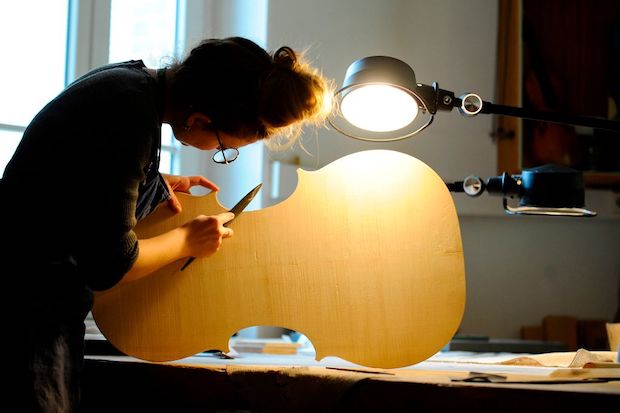Amongst the good places to be in Britain, the National Theatre and the RSC in Stratford-upon-Avon are up there. What I see or do when in these places is almost secondary to being there. Soaking it up in the National Gallery is a close second. Knowing that this country once had the courage to provide the necessary subsidy to create a national theatre; it is daily fillip to see what a beacon our two great theatres are for work that makes us think about how we live.
This feeling is compromised by knowing what is going on in maintained schools at the moment. Writing in The Guardian, the Director of the National Theatre, Rufus Norris, asked why we are squeezing the creativity from our schools. Norris offered as evidence statistics on the benefit to the UK economy of the creative industries (which are of greater value to the UK economy each year than the automotive, oil, gas, aerospace and life sciences combined). I would add that a major factor in keeping Brexit-sensitive highly paid jobs in London is likely to be the strength of the capital’s cultural life.
In recent times, the educational mood music from Whitehall has been that STEM subjects (science, technology, engineering and maths) are the horses to back in terms of skills for employment in the global race. We can all agree on the importance of these disciplines, but I see an instinct to promote STEM subjects in school at the expense of a wider education. Policy makers would do well to heed the growing body of evidence concerning the crucial importance of the arts and humanities to STEM practitioners.
The educationalist Bill Lucas has written that a focus on STEM subjects at school is not sufficient for would be engineers. Rather, he says, the world class civil engineering department at UCL has shown that undergraduates do not need maths or science at A level in order to excel, which turns accepted wisdom on its head. Other subjects matter too, argues Lucas, and Art and Design in particular. It is the arts that provide the ‘A’ in STEAM (adapted from STEM), and they help to facilitate what he proposes are the necessary habits of mind.
More generally, a 2017 report on socioeconomic status (SES) and science learning has found literacy to be ‘the strongest and most consistent predictor of pupils’ scientific attainment’. Review of SES and Science Learning in Formal Educational Settings, reporting on research from the University of Oxford, finds that reading and writing skills are particularly important for helping pupils to understand scientific vocabulary and prepare their own scientific reports, and that this is the gateway for higher academic attainment for more disadvantaged pupils – a finding that ought to pique the interest of policy makers with a particular interest in social mobility.
Sadly, nine out of every 10 schools in a recent BBC survey confirmed they are cutting back in at least one creative arts subject. Bedales is well known for offering an arts-rich curriculum, and we have a track record of challenging government’s recent obsession with STEM subjects at the expense of the arts and humanities. Is this because we don’t value STEM subjects? Absolutely not – rather, it is because we believe that any clean distinction between science and arts and humanities subjects is both false and unhelpful to all concerned. We prefer to encourage our students to develop a facility for understanding their subjects, and indeed their worlds, from as many different perspectives and experiences as possible.
The SES report adds grist to our mill, with the authors finding that literacy is essential to both the production and consumption of science. We need the linguistic wherewithal to understand it as practitioners, and to calibrate the scientific components of the pressing issues of the day through political discourse. This is crucial, if we are to educate young people as fully active citizens and, should that be their preference, scientists and engineers with an understanding of the wider societal implications of the work that they do.
Not everything worthy of analysis can be confined to a laboratory, and be reduced to set of measurable variables. Why should we settle for simply schooling our young people to be competent users of the intellectual orthodoxies of the day, when we could encourage them to take a step back and find new ways of thinking about what they are doing? I accept that this is a big ask, but I believe the reward to be substantial – and it might start with guidance that the arts, sciences and humanities are not ring-fenced areas, but instead common and fertile ground for study and more.
The purpose of schools is about encouraging young people to discover how they might live in the world, rather than just work in it, and when I imagine schools stripped of the arts it chills me to the bone.
Keith Budge is Headmaster of Bedales Schools






Comments